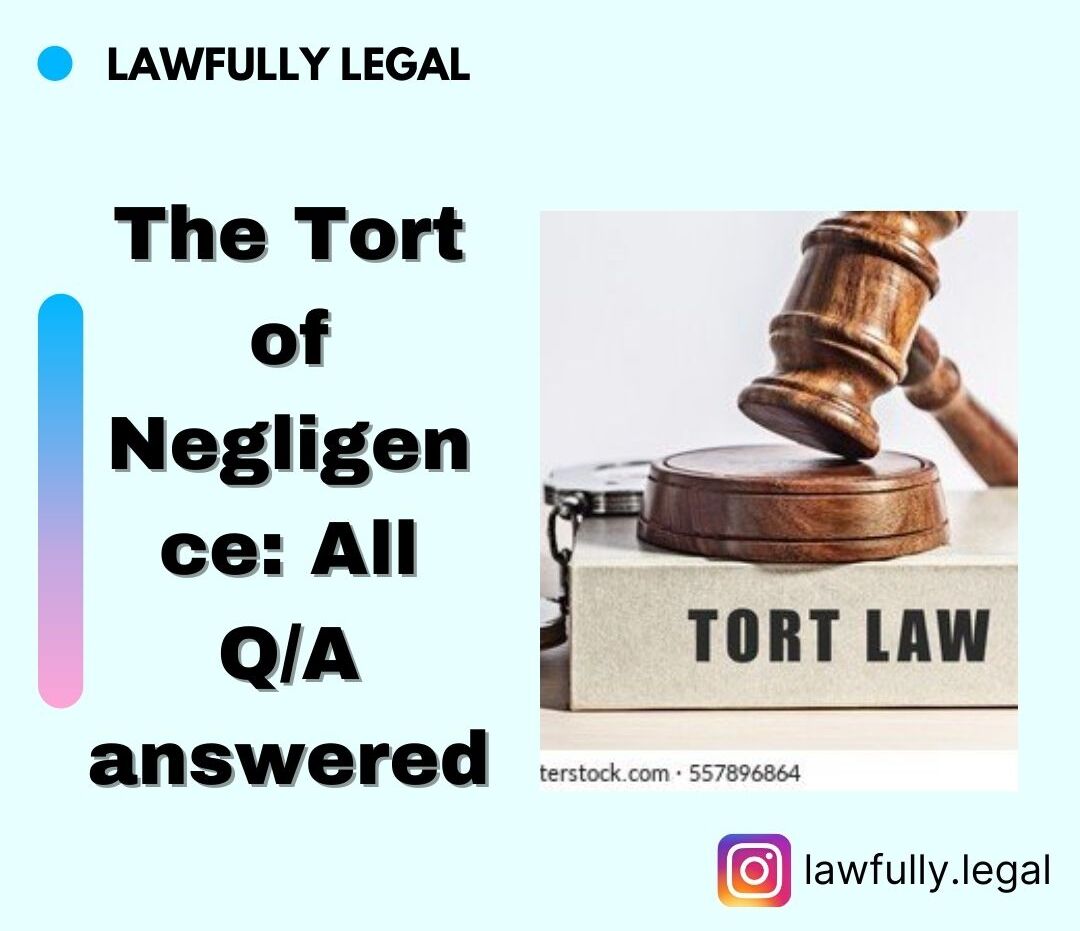Negligence is a tort which is taking place every single day. There are numerous examples where negligence goes unnoticed.
Car accident due to high speed? Case of Negligence.
Did a worker injure at work due to the poor quality of protection provided? Case of Negligence.
Did an accident take place due to potholes on roads? Case of negligence.
A doctor who operates on the wrong patient or on the wrong body part? Case of negligence.
A restaurant owner who mops the slippery floor and doesn’t put up a “Wet Floor” sign? Case of Negligence.
With so many instances of Negligence taking place in our lives, let us try to decipher what negligence actually is.
Table of Contents
What is Negligence?
Negligence can be defined as a failure to exercise due care towards others, which a reasonable person in your place will do. For example, if you cause an accident and injure someone by driving your vehicle at a very high speed, the injured person can sue you for negligence as you owed a duty of care towards that person by not endangering his life by driving fast.
An important thing to note here is, Negligence does not require a wrong intent. Rather it requires careless or reckless behaviour.
To sue someone for negligence, one should fulfill all the elements of negligence.
Elements of Negligence
The elements of negligence are:-
- Duty – a person should owe a duty of care.
- Breach – He should breach that duty by doing it carelessly or by not doing it at all.
- Causation – His breach of duty actually caused damage to the aggrieved person.
- Damages – There was damage caused to the person due to his breach of duty.
If all the above conditions are fulfilled, the tort of negligence has been committed and you can sue that for negligence.
There are many questions which arises in context of Negligence, some of them are:
What does it mean to be Negligent?
If someone is accused of being negligent, it means that the individual has failed to exercise due care. He owed a duty of care and has breached that duty by doing it carelessly or omitting the act entirely.
So, if an individual does all of the above-mentioned things, he can be said to be negligent.
What is the most difficult element to prove in Negligence?
The most difficult element to prove in the tort of negligence usually is that the defendant caused a breach of duty. There are many aspects to a particular situation and the “reasonableness” of care may vary from situation to situation.
Proving breach of duty may require an investigation into the causes of the accident, eyewitness interviews, and the gathering of other relevant evidence. This makes it most difficult element to prove.
What is willful negligence?
Willful negligence takes place when an individual intentionally disregarded all the risks and caused damages to another individual. The important element here is that the act was either intentional or done voluntarily.
For example, Abdul got very drunk at a bar. He disregarded all the risks associated with drunk driving. So when Abdul was returning home, he hit a pedestrian. This case will be treated as willful negligence rather than ordinary negligence.
Difference between ordinary negligence and willful negligence.
The basic difference between willful negligence and ordinary negligence is intention. In ordinary negligence, there should be a breach of duty of reasonable care.
But in willful negligence, the act has to be committed by disregarding all the risk intentionally or voluntarily.
Why did the concept of willful negligence come into existence?
The whole concept of willful negligence came into existence by the insurance companies. To save their money, insurance companies mention explicitly in their terms and conditions that:
Negligence is covered.
Gross and willful Negligence not covered.
The insurance companies refuse to cover willful negligence and hence the concept came into existence.
What is professional negligence and how to prove it?
Professional negligence can be defined as the negligence committed by a professional when on duty. For example, A surgeon who had to perform the surgery on the right hand accidently performs on the left hand. This falls under professional negligence.
The necessary element here is that he should be on duty. For example, if a licensed physician gives informal advice to a person at a social gathering and that person acts on it, the physician will not be held liable for professional negligence as he was not on duty.
These are the basic QnA’s surrounding the tort of negligence. If you think I missed something or want answer to any other question. Please mention in the comments.










Leave a Reply
View Comments